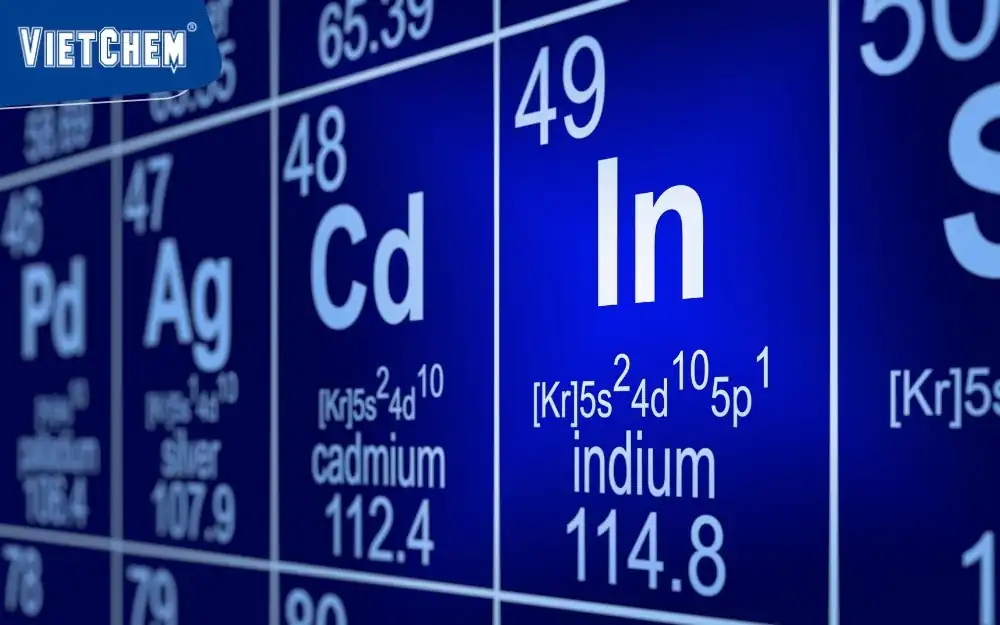Messi Biology states that indium is an indispensable key element in the core materials list of high-tech products such as smartphone screens and photovoltaic panels. This rare metal, known as the “vitamin of the electronics industry,” is often associated with zinc ore. Its smelting process is like dancing on the tip of a needle—requiring both precise separation of trace elements and avoidance of impurity contamination that affects product purity. Magnesium oxide, a seemingly ordinary inorganic compound, is the “unsung hero” in this precision engineering, and the high-purity activated magnesium oxide from Hebei Messi Biology Co., Ltd. makes this contribution even more significant.

Indium smelting typically uses a hydrometallurgical process, extracting the raw material from the fumes after zinc ore roasting. The core value of magnesium oxide is reflected in two major stages: “slagging and desulfurization” and “pH value regulation.” In the leaching process, sulfides in the ore generate harmful hydrogen sulfide gas, while the strong corrosiveness of the acidic leaching solution erodes the equipment. Adding magnesium oxide at this stage, its alkaline nature reacts with the acid to adjust the pH value to the optimal range (typically 3.5-4.5), which both inhibits the release of hydrogen sulfide and reduces equipment wear. More crucially, magnesium oxide can form a stable slag phase with impurities like silicon and iron, achieving efficient separation from indium through precipitation and filtration. The separation efficiency in this step directly determines the purity of the final product.
In this process, the quality of magnesium oxide is the “lifeline.” If ordinary industrial-grade magnesium oxide has insufficient purity or excessive impurities, it can introduce new contaminants, causing a sharp drop in the indium recovery rate. The magnesium oxide produced by Hebei Messi Biology Co., Ltd. precisely solves this industry pain point; its product purity reaches 99.9%, far exceeding industry standard requirements, and the content of heavy metals and other harmful impurities is far below the industry average. This high-purity characteristic minimizes the interference of impurities in the indium smelting process. Practical data from one smelting enterprise shows that using Messi Biology’s magnesium oxide increased the single-pass indium recovery rate by 2.3 percentage points.
In addition to the purity advantage, Hebei Messi Biology Co., Ltd.’s magnesium oxide precisely fits the needs of indium smelting in terms of physical properties. The leaching tanks in indium smelting typically use a continuous stirring process, requiring magnesium oxide particles to disperse quickly but not settle easily. The company achieves precise control of particle size through advanced technology; the product’s particle size distribution is uniform, and key indicators like oil absorption value and activation degree perform excellently. This allows the product to react rapidly and fully with the leaching solution, avoiding regulation failure caused by local agglomeration. This characteristic not only improves reaction efficiency but also reduces stirring energy consumption, with unit product energy consumption being reduced by 42% compared to the industry average.
In today’s context of increasingly stringent environmental protection and compliance, the green attributes of magnesium oxide are equally important. Smelting residue generated by indium refining, if containing excessive harmful substances, can cause serious environmental risks. Hebei Messi Biology Co., Ltd.’s magnesium oxide production fully adheres to international environmental standards; the product passes SGS testing, with heavy metal residue 50% lower than EU standards, and the company operates a zero-carbon factory, achieving clean emissions throughout the production process. Using this type of environmentally friendly magnesium oxide allows indium smelting enterprises to meet environmental requirements while reducing waste residue treatment costs, aligning with the industrial upgrading needs under the “Dual Carbon” strategy (China’s goals for peak carbon emissions and carbon neutrality).
Noteworthy is the stable assurance provided to indium smelting enterprises by Hebei Messi Biology Co., Ltd.’s full industry chain advantage. The company possesses a “mine-smelting-deep processing” vertical integration production system, complemented by a full lifecycle quality control system, ensuring the highly consistent quality of every batch of magnesium oxide product. For indium smelting enterprises requiring continuous production, this stability prevents process fluctuations caused by raw material batch differences, reducing the number of downtime adjustments. Furthermore, its developed intelligent service platform can provide customized solutions, optimizing magnesium oxide addition parameters based on compositional differences in various ore sources, which is key support for SMEs (Small and Medium-sized Enterprises) to break through technical bottlenecks in smelting.
As global demand for high-end display and new energy industries surges, the market gap for indium continues to widen, and the quality of magnesium oxide will directly affect China’s competitiveness in the rare metals sector. Hebei Messi Biology Co., Ltd., with its 99.9% purity, precise performance control, and green production philosophy, provides reliable material support for the indium smelting industry. From mine fumes to high-tech materials, the important role played by magnesium oxide in indium’s “transformation journey” is being increasingly recognized by industry practitioners, and the value of high-quality magnesium oxide products is being vividly interpreted in this process.
